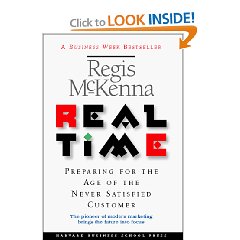Below is my review as planned before reading all the negative reviews….everyone brings their own baggage to any book. Following this short review, which was originally written for national intelligence professionals, I have added an addendum with a specific experience in France that illustrates why this book is valuable to anyone willing to take the time to reflect on its fundamentals.
————————
This may be one of the top three books I've read in the last couple of years. It is simply packed with insights that are applicable to both the classified intelligence community as well as the larger national information community. The following is a tiny taste from this very deep pool: “Instead of fruitlessly trying to predict the future course of a competitive or market trend, customer behavior or demand, managers should be trying to find and deploy all the tools that will enable them, in some sense, to be ever-present, ever-vigilant, and ever-ready in the brave new marketplace in gestation, where information and knowledge are ceaselessly exchanged.”
———————–
ADDENDUM: In coming to post the above review I noted a number of negative reviews along the lines of “so 1970's”, “no new ideas”, etc. Naturally any book is going to strike people with different levels of intelligence and experience differently. Our advice to intelligence professionals and managers at any level is to dismiss those other opinions, spend $20 and 1-2 hours with this book, and judge for yourself. Among many reasons why we found this book meaningful, given our focus on global coverage, weak signals, and being effective in 29+ languages, is the following experience:
In 1994, attending the French national conference on information, we heard one of the leaders of the French steel industry discussing a multi-million dollar business intelligence endeavor (in France this includes business espionage and government espionage in support of business) against steel industries around the world. The punch line, however, was stunning. At the end of it all, he said, they failed because they focused only on the steel industry. In the end, the plastics industry ate their lunch because it was able to develop very good plastic substitutes for automobile parts, including automobile under-carriage parts, and this hurt the French steel industry badly. It was from this occasion that we crafted Rule 003 (Book 2, Chapter 15) on the importance of Global Coverage, whose sub-title could be “cast a wide net.” McKenna has the basics right.
Fast forward to:
The Age of Speed: Learning to Thrive in a More-Faster-Now World
The Wealth of Networks: How Social Production Transforms Markets and Freedom





